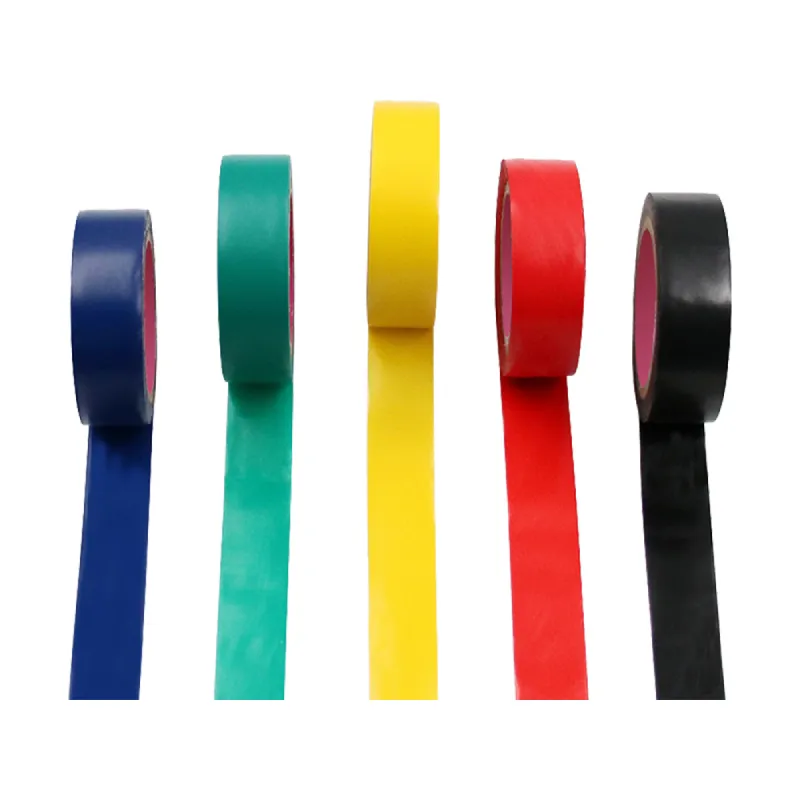Fabric Insulation Tape in Electrical Applications
When it comes to electrical applications, safety and efficiency are paramount. One of the unsung heroes in this regard is fabric insulation tape, an essential tool that combines versatility, reliable insulation, and ease of use. This article delves into the features, advantages, and applications of fabric insulation tape, especially in electrical work.
What is Fabric Insulation Tape?
Fabric insulation tape is a specialized type of tape designed for electrical insulation. Traditionally made from cloth or other fabric materials, it is coated with an adhesive that provides excellent insulation properties. This tape is available in various colors and sizes, making it suitable for different applications while conforming to industry standards.
Characteristics of Fabric Insulation Tape
One of the standout features of fabric insulation tape is its durability. The fabric backing ensures that it can withstand high temperatures and resist abrasion, making it ideal for environments where other insulation materials might fail. Additionally, its flexibility allows it to conform to irregular surfaces, providing a tight seal that enhances its insulating properties.
Another important characteristic is the adhesive used in fabric insulation tape. It is formulated to provide strong adhesion to various substrates, ensuring that the tape remains securely in place even in demanding conditions. Furthermore, many fabric insulation tapes are resistant to moisture and solvents, which adds to their longevity and effectiveness in electrical applications.
Benefits of Using Fabric Insulation Tape
1. High Insulation Value Fabric insulation tape generally offers excellent insulation resistance, effectively preventing electrical leakage or short circuits. This makes it a popular choice for securing electrical splices and connections.
2. Heat Resistance Many fabric insulation tapes can withstand high temperatures without losing their insulating properties. This makes them suitable for applications near heat sources or in settings where thermal exposure is a concern.
3. Easy Application The flexibility of fabric insulation tape means it can be easily wrapped around wires and connections, even in tight spaces. Additionally, it is easy to tear by hand, allowing for quick application without the need for cutting tools.
fabric insulation tape electrical

4. Visual Identification The availability of various colors allows for easy identification of different wires or circuits, which contributes to safer electrical setups. For instance, color coding can be useful in distinguishing between high-voltage and low-voltage lines.
5. Cost-Effective When compared to other insulating materials, fabric insulation tape is often more affordable, making it an economical choice for both DIY enthusiasts and professional electricians.
Applications of Fabric Insulation Tape
Fabric insulation tape has a wide range of applications in the electrical field
- Wiring Harnesses It is often used to bundle and insulate wiring harnesses in automotive, aerospace, and electronic applications. The high flexibility of the tape allows it to conform to the shapes of various components, ensuring comprehensive coverage.
- Repairing Frayed Wires If a wire is frayed or damaged, fabric insulation tape can provide a temporary fix until a more permanent solution is applied. It helps to prevent further exposure and potential electrical hazards.
- Insulating Terminals and Connectors When connecting wires, fabric insulation tape can be wrapped around terminals and connectors to provide an additional layer of insulation, reducing the risk of short circuits.
- Labeling and Color Coding The use of different colors in fabric insulation tape also aids in labeling. Electricians and technicians can use colors to signify specific functions or voltages, which is particularly useful in complex installations.
- Bundling and Organizing In addition to insulation, fabric tape is often used to bundle wires together, keeping them organized and reducing clutter in electrical panels and installations.
Conclusion
In conclusion, fabric insulation tape is a vital component in the electrical industry, offering a blend of insulation, durability, and convenience. Its versatility and range of applications make it an indispensable tool for electricians, engineers, and DIY enthusiasts alike. When used correctly, fabric insulation tape can enhance safety and efficiency, ensuring that electrical systems operate reliably and securely. As technology and materials continue to advance, the role of fabric insulation tape will remain central in the ongoing evolution of electrical insulation solutions.
-
XIANGFAN Rubber Tape-Ultimate Solutions for All Your Insulation NeedsNewsJun.24,2025
-
XIANGFAN Rubber Tape-Protection for Industrial and Residential ApplicationsNewsJun.24,2025
-
XIANGFAN Rubber Tape: Superior Safety and Sealing for Demanding EnvironmentsNewsJun.24,2025
-
XIANGFAN Rubber Tape: Reliable Solutions for Every Electrical ChallengeNewsJun.24,2025
-
XIANGFAN Electrical & Industrial Tape: Powering Reliability Across IndustriesNewsJun.24,2025
-
XIANGFAN Electrical & Industrial Tape: Excellence in Every ApplicationNewsJun.24,2025
